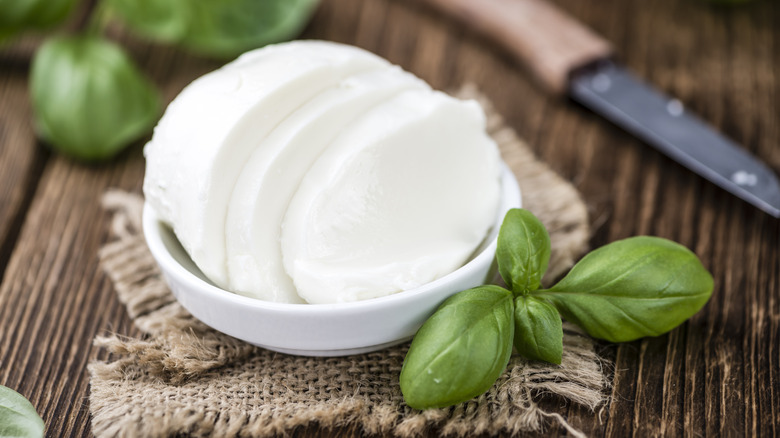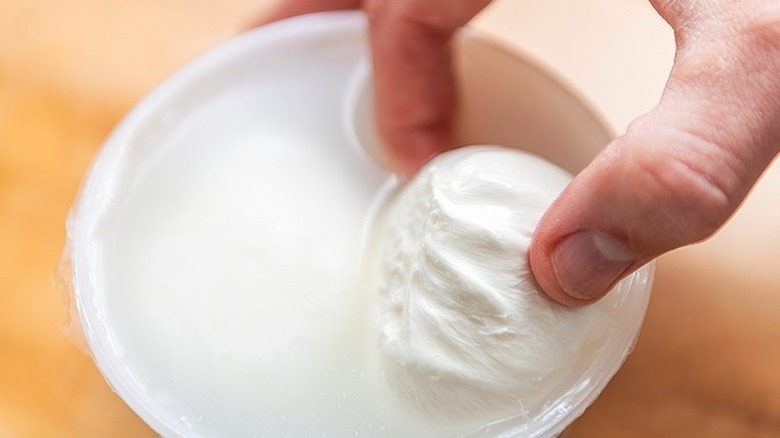Why Fresh Mozzarella Shouldn't Be Stored In The Fridge
With fresh basil, juicy tomatoes, and creamy mozzarella, the Caprese salad is an anytime favorite. You can't deny this dish's star is the pearls of cheese. Fresh mozzarella is not to be confused with its block-shaped brother that goes on our pizzas or its close burrata cousin. Made from the milk of water buffalos, fresh mozzarella (or mozzarella di bufala) originated during the 17th century in the Campania region of Italy. Its rich history is a testament to why it's so important to store this cheese correctly.
According to Datassential's Cheese and Dairy Report, people are ordering more fresh mozzarella than ever, allured by that guaranteed creamy bite. Yet that bite could be filled with disappointment, especially if you're storing this cheese in the fridge. To appreciate fresh mozzarella as it was made to be enjoyed 400 years ago, you need to understand that it's all about how the texture can impact the quality.
It's all about texture
There is serious debate surrounding how and if fresh mozzarella should be stored in the fridge. Mozzarella is a curd cheese made through a process called pasta filata. Due to its high water content, mozzarella is stored in a whey liquid which allows the cheese to remain hydrated and retain its moisture, shape, and taste. You want it to softly release some of those cloudy whey juices when cutting mozzarella.
Once fresh mozzarella is put into the fridge, it begins to absorb the surrounding liquid, and its texture tightens. Instead of a silky, soft orb, you're left with a rubbery, cold blob. Look at it this way: mozzarella is not aged or matured like other cheeses (such as cheddar); it is made fresh, so its shelf life is much shorter. The longer you store mozzarella (in the fridge or not), the less tasty it will be. Similar to freshly baked bread, it will not taste as good as the first day you made or purchased it. You wouldn't put a fresh loaf of bread in the refrigerator, right? As Sarah Jampal puts it, "The problem is solved if you eat your cheese as fast as possible." Right on, Sarah, skip the fridge!
Mozzarella rescue!
Look, we get it; there are times when using fresh mozzarella on the day of purchase isn't possible, or perhaps even devouring an entire dome in one sitting is entirely out of the question. Well, we've got some pointers for these scenarios. First, you should avoid wrapping your mozzarella (or any other cheese, for that matter) in cling film and putting it into the fridge. Mozzarella needs moisture to remain gooey and soft. If you are keeping it for use the next day, then you can always submerge it in a cold bowl of water overnight.
If you can't avoid putting it in the fridge, there are ways to maximize flavor once you bring it back to room temperature. Most cheeses are at their most flavorful when eaten at room temperature, and this is because the fat molecules loosen, and the flavor breathes. On MasterClass, Massimo Bottura recommends submerging your mozzarella in olive oil and storing it in the fridge. However, try re-soaking cool mozzarella in a warm whey or milk-salted bath to retain the most flavor. While you may still compromise on texture, at least the taste will improve!


